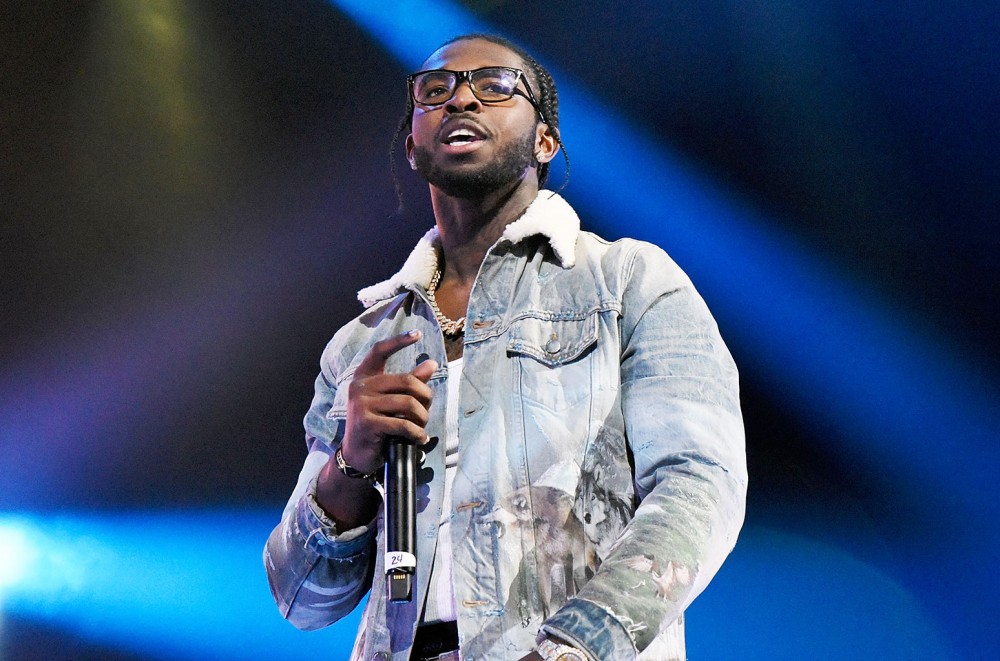
Pop Smoke Was Special, And the World Was Just Beginning to Realize It
Pop Smoke’s rise didn’t take place overnight, but it happened quickly, and loudly, enough that the upper limit of his trajectory kept appearing higher and higher.
Case in point: On this week’s Billboard 200 chart, Pop Smoke earned his first top 10 entry with Meet The Woo 2, which debuted at No. 7 on the albums tally. Just six months earlier, the first Meet the Woo mixtape peaked at No. 173 on the charted dated Aug. 31, 2019. A lot can change in half a year; for Pop Smoke — the ascendant 20-year-old Brooklyn rapper who was shot and killed this morning in a home-invasion robbery — that time had been spent defying expectations, until his rise came to a tragic end.
The Canarsie native born Bashar Barakah Jackson originally wanted to be a basketball player, and moved to Philadelphia as a young teenager to play point guard and shooting guard at a prep school. At the age of 15, when he found out he had a heart murmur that would prevent him from playing competitive ball, he changed his focus — first, to street life (a weapons charge put him on house arrest for two years), then to music. Pop Smoke only started rapping at the end of 2018, trying his hand at rhyming when a buddy fell asleep during his own studio session; the impromptu mic-grabbing resulted in “MPR,” which now has 4 million YouTube views.
Hip-hop was a natural fit for Pop Smoke because, as evidenced immediately on “MPR,” his voice — a gravelly rasp, thick and sinewy in its texture, unforgiving in its delivery — was deep enough to slice through any piece of production or distinguish itself on any type of collaboration. Part of the reason why “Welcome to the Party,” his breakthrough single released last April, connected as both a local anthem and as a national introduction is simply because Pop Smoke’s voice was the one rolling over the words, punching them into submission. Even when stars like Nicki Minaj and Skepta hopped on remixes, Pop Smoke’s singular flow remained its DNA.
And Pop Smoke happened to pair his voice with a growing strain of hip-hop that complemented everything about his approach. A Brooklyn-based variation on Chicago drill music, which also contains pieces of U.K. rap and grime, informed the sound of both Meet the Woo projects, with crater-deep bass, airless percussion and production details that swirl around chaotically before locking into place. Brooklyn drill can be pummeling, but Pop Smoke was learning to let some light into his songs guest stars on recent tracks, with artists like Quavo, A Boogie Wit da Hoodie and Lil Tjay among those playing foil to his rumbling flow with higher-register melodies on Meet the Woo 2. And Pop Smoke demonstrated a growing ability to conjure hooks out of his beats himself — witness recent single “Christopher Walking,” which polishes the blueprint of “Welcome to the Party” to maximize the amount of moments that could possibly get lodged in the listener’s brain.
Just 14 months after laying down his first song, Pop Smoke was bringing Brooklyn drill to mainstream hip-hop listeners, and working with the genre’s elite. “Gatti,” his collaboration with Travis Scott (as part of the JACKBOYS release), became Pop Smoke’s first Hot 100 entry, with the album topping the Billboard 200 chart. The menacing Quavo team-up “Shake the Room” sounded like it could bring the rapper to an even wider audience as the centerpiece of Meet the Woo 2. A tour was scheduled to kick off on March 2, with multiple dates sold out. Pop Smoke was primed to be one of the breakout hip-hop artists of 2020, making the reality of his death even more sick and senseless.
With the shooting death of Nipsey Hussle less than a year ago — and the passings of Juice WRLD, Mac Miller, XXXTentacion and Jimmy Wopo all in the past two years — the hip-hop world has experienced untimely ends far too often. At just 20 years old, Pop Smoke had established himself as a special talent, and the greater music community was just beginning to see that talent unlocked. Heartbreakingly, he is now part of that gone-too-soon list. He only started rapping 14 months ago, but that was long enough to make a seismic impact.